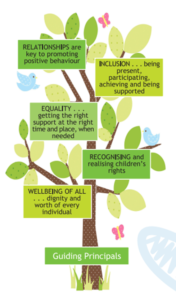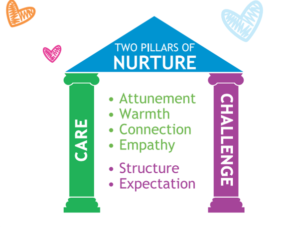Our work on Promoting Positive Relationships naturally follows on from our work on Nurture. Promoting Positive Relationships moves away from the behaviourist approach in education, whereby students are rewarded for desired behaviours (such as given praise for doing well on a test), and punished for undesirable behaviour (such as staying back during break time if they have not completed their homework).

Rather, our policy on Promoting Positive Relationships is based upon the relationships between our children and young people, and the adults in their lives. It is concerned with recognising and realising children’s rights, inclusion, equity, and wellbeing for all. Moreover, it is based on the key concepts of attachment, toxic stress, nurturing principles, authoritative discipline, and restorative principles. Positive relationships within a school are essential for effecting learning, and for a child’s wellbeing.
Research has shown that when children need help with behaviours, authoritative approaches works best to support them. An authoritative approach combines both the care and warmth that children need, as well as the clear and consistent expectations and boundaries, which they also need.


